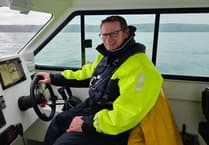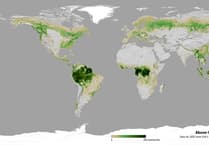Governments are not doing enough to prioritise biodiversity when it comes to their green policies, an Aberystwyth University academic has said at a United Nations convention in Canada.
The COP15 United Nations’ biodiversity summit in Montreal hosted more than 10,000 scientists, government officials and activists from almost every nation between 7 and 19 December, with the aim of “approving long-term goals and targets to help prevent the ongoing loss of terrestrial and marine biodiversity.”
The conference heard that around one million species are currently threatened with extinction.
In an event at the summit, Professor Mike Christie of Aberystwyth Business School outlined that the way in which the natural world is valued in policy decisions often ignores its social, cultural, and spiritual significance.
He said that “society’s over-emphasis on short-term profits and economic growth has resulted in the devaluation of nature”, and that “governments need to do more to take into consideration the views of local people and indigenous communities in policy decisions.”
Prof Christie told the summit: “There needs to be a step change in how governments are responding to the global biodiversity crisis.
“Policymaking can be difficult: economic development projects can create jobs and boost GDP but at the expense of damaging an area’s ecosystem. “Governments need to pay greater attention to the growing body of scientific evidence on the true value of nature, and the contribution it makes to local communities and the wider environment.”
Prof Christie was co-author of a landmark IPBES ‘Values Assessment’ report published earlier this year that argued governments needed to look beyond market-based aspects of policymaking and ensure that decisions take their effects on nature and citizens into consideration.
“If we want to protect nature, everyone needs to contribute to this call. In addition to international, national and local governments, business and people also need to change behaviour to reduce their impacts on nature,” he said.
“It is not just about what values are important, but whose values are considered in policy.
“We need to address the imbalance of power in decision making to ensure that all voices, including those of indigenous peoples, are heard.
“Time is running out to stop biodiversity loss. What happens at COP15 will have significant impacts on the future for both people and nature.”
The UN hopes that governments will reach agreement on new long-term goals and action will help transform humanity’s relationship with biodiversity and ensure that by 2050 a more harmonious balance is fulfilled.





Comments
This article has no comments yet. Be the first to leave a comment.